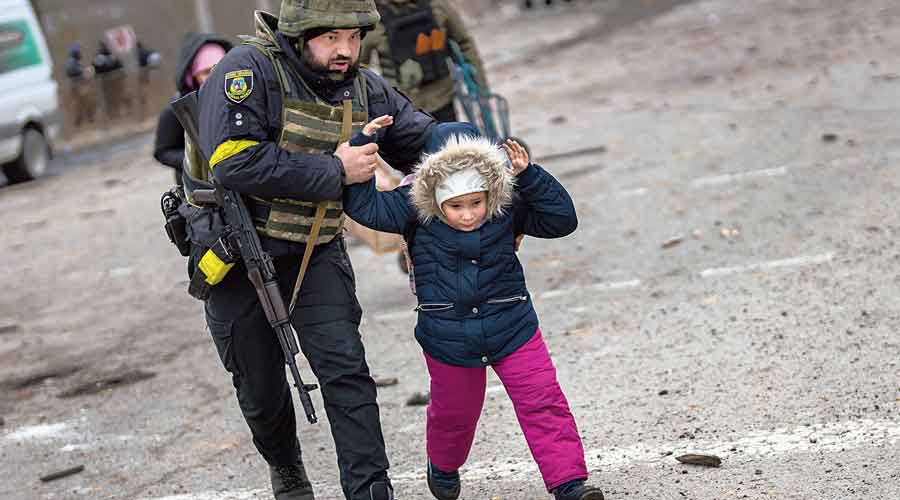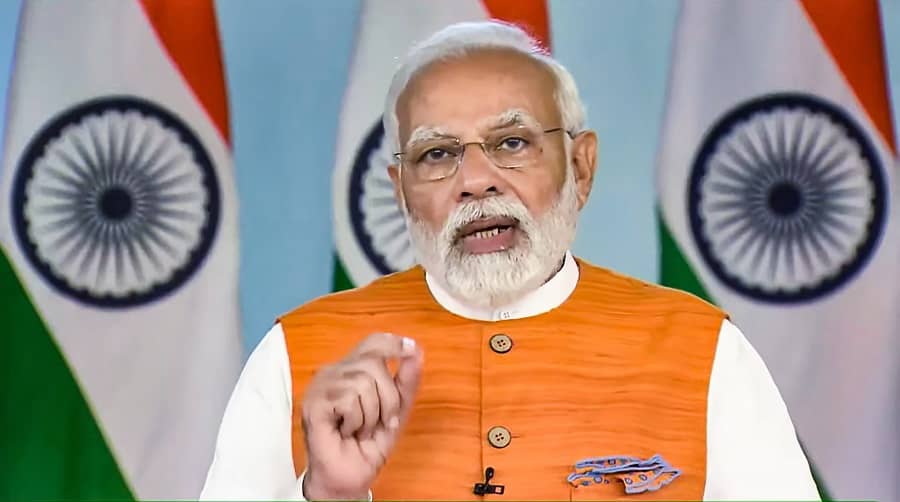The evacuation of 700-plus Indian students from the eastern Ukraine city of Sumy was put on hold at the last minute on Monday amid reports of violations of the ceasefire announced by Russia and despite diplomatic efforts by Prime Minister Narendra Modi.
Modi had spoken to the Russian and Ukrainian Presidents during the day and stressed the need to evacuate the Indians at the earliest.
The students were about to board buses arranged by the Indian embassy when they were asked to return to the hostels where they had been holed up since the fighting began, with Sumy one of the first cities to face Russian shelling.
Now, they await fresh instructions amid signs that this second effort at a ceasefire is unlikely to hold, with Ukraine describing as “completely immoral” the Russian announcement on creating humanitarian corridors to take people out to either Russia or ally Belarus.
Russia had early on Monday morning announced that it would set up humanitarian corridors to allow people to leave the Ukrainian capital of Kyiv, the strategic port city of Mariupol, and the eastern cities of Sumy and Kharkiv.
A spokesperson for Ukrainian President Volodymyr Zelensky was quoted by Reuters as calling the proposal “completely immoral” and insisting that Moscow was making an attempt to “use people’s suffering to create a television picture”.
Ukrainian Deputy Prime Minister Irina Vereshchuk said Russia’s ceasefire proposal was “unacceptable”, according to the Associated Press.
Ukraine is opposed to the proposal because it entails taking Ukrainians looking to leave the conflict zone to Russia or Belarus.
This has been the second abortive effort since Saturday at creating a humanitarian corridor to help those who want to leave the country.
For the Indian students at Sumy, Moscow’s proposal to provide a humanitarian corridor to Russia would have been the best option given that the border is only 30km away, but it would entail crossing two frontlines.
A team from the Indian embassy has been stationed in the central Ukrainian city of Poltava since Sunday in the hope of a breakthrough, of which there was an indication on Sunday night.
Earlier on Monday, Modi first spoke with Zelensky and then with Russian President Vladimir Putin. This was Modi’s second conversation with Zelensky and third with Putin since the conflict began on February 24.
Both Presidents, according to the Indian readouts of the two conversations, brought Modi up to speed on their direct negotiations. The third round of negotiations was scheduled for later on Monday in Belarus.
Further, Modi suggested to Putin that “a direct conversation” between him and Zelensky “may greatly assist the ongoing peace efforts”, amplifying a demand from the Ukrainian President himself.
According to the Kremlin readout of the conversation, Modi “expressed readiness to render any assistance possible to achieve an early resolution of the conflict”.
Kremlin called it a conversation in connection “with the special military operation for the protection of Donbass and, in particular, the evacuation of Indian nationals”.
It said that while Russia had declared a ceasefire and opened humanitarian corridors, “nationalist formations continue to create obstacles to the peaceful evacuation of civilians, including foreign nationals, from the combat areas by resorting to crude force and various provocations”.
Putin repeated that Indian students had been held hostage in Kharkov (Kharkiv), something the external affairs ministry has officially denied in a rare instance of India publicly contradicting the Russian President.
This was the third time Putin had talked about a hostage situation in Kharkiv involving Indian students.
With the Indian students in Kharkiv having left Ukraine over the weekend, Putin this time said: “The Indian students, who were held hostage by radicals in Kharkov, managed to leave the city only after strong international pressure was exerted on Kiev (Kyiv).”












